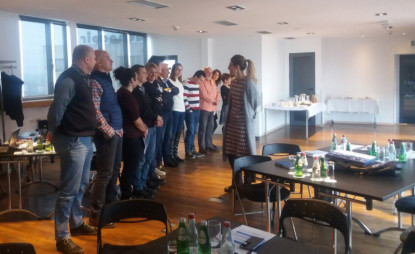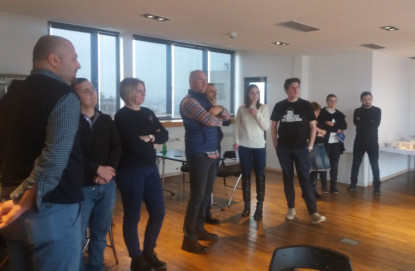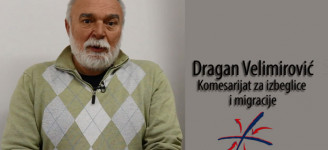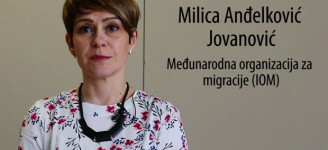The training of trainers in the Migration Training Center began on March 5, 2018
Within the project „Support to Strengthening Migration and Asylum Management in Serbia“ which IOM Serbia Office carries out with the support of the British Embassy, realization of trainings for various service deliverers in the field has been envisaged, empowering them to work with vulnerable groups, with a special emphasis on women and children.
On the basis of prepared materials (the Handbook „Protecting the Rights of Migrants“ and the dictionary, the Program of Training for Work with Vulnerable Groups and the Guide for Field Work), it is envisaged that training would be provided for 15 trainers who are employees of the Commissariat for Refugees and Migration and representatives of IOM mobile teams.
Thus, the first group of trainers would be formed and trained, who would provide support to various groups of professionals in their work in the field in order to protect particularly vulnerable groups of migrants – women, children and unaccompanied minors.
This will concurrently be the first group of trainers who will, as a part of the new Migration Training Center in Plandište, take part in development of new technologies that may boost the skills of service deliverers in the field.
The realization of the training in the field will be assisted by the use of „The Handbook on Protecting the Rights of Migrants in the Republic of Serbia,“ „The Training Program“ and the practical guide „The Protection of Refugees and Migrants in the Field,“ an accompanying document that serves as support both to future trainers and to service deliverers. All aforementioned materials have been created within the project in cooperation with international partners such as UNICEF UNFPA and UNHCR.
The program will be carried out as a three-day training from March 19 to March 21, with the following objectives/foci:
- Acquainting participants with international and national legal framework of protection of migrants with reference to mandates and standards that different actors ought to reach in the process of providing support to migrants on their way through Serbia.
- Acquainting the participants with the manners of identifying vulnerable groups and mechanisms of protection enforced in the field.
- Preparation of participants for conducting the program with an emphasis on training skills.





















